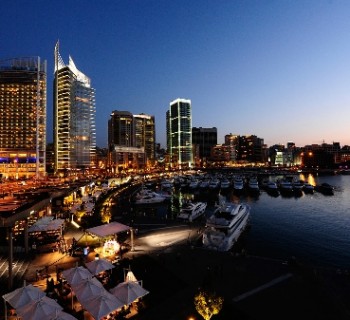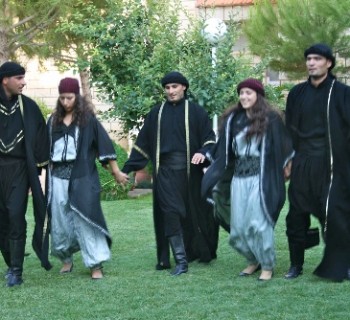Coat of arms of Lebanon
This coat of arms is very similar to the Lebanese flag. The coat of arms of Lebanon consists of a red shield with a white bend in the center. There is a Lebanese cedar in this bend. This coat of arms differs from the flag of Lebanon in that the flag has a horizontal white stripe, and the coat of arms uses a bend.
Why is cedar used on the coat of arms
The use of cedar is due to the fact that it is a traditional Lebanese symbol. Surprisingly, cedar is associated with Christianity, and not with Islam as the dominant religion. Psalm 91 has an inventory of a cedar that stands in Lebanon and is compared with a righteous man who is in bloom.
In addition, the cedar is a sign meaning immortality. Later, the tree becomes a symbol of the Maronites - a Christian sect. She had the greatest influence on the territory of Lebanon..
When Lebanon was part of the French dominion, a tricolor similar to the French was used for the flag. In the center of the flag was an image of a cedar. Then only red and white colors remained in the coat of arms, and the image of the cedar did not change and remained.
What do the colors of the coat of arms mean
The meaning of white and red is symbolic. White means the dazzling whiteness of the Lebanese snow-capped peaks. In a broader sense, white means the pure thoughts of the people of Lebanon. Red means blood spilled in the fight against the French and Ottoman oppressors.
Interesting Facts
It is believed that the red and white colors are symbols of the once ruling clans in Lebanon, which constantly opposed each other. This confrontation did not last long and not a little - more than one millennium, ending only in the eighteenth century. The tree has a green color, which fully corresponds to the constitution, where it is written that the tree is only green, and there can be no other color.
A brief history of the coat of arms
The appearance of the coat of arms of Lebanon is associated with gaining independence from France. After the end of the First World War, this territory went to France, and in 1926 it received the status of a mandate territory. At that time, in 1920, the country received the first flag. In 1943, during World War II, Lebanon officially declared independence from France, which at that time was occupied by Nazi Germany. At the same time the coat of arms and flag of the country was approved. All French constituent elements were removed from the image of the coat of arms, in particular, the blue color. In 1967, minor changes were made to the Lebanese coat of arms.


